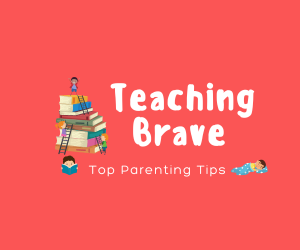Are you a single parent? Sharing the parenting with your ex?
Co-parenting can be very challenging. It takes a certain level of compromise, cooperation and communication to be able to do it without too much conflict or disruption for the children.
I’ve been co-parenting for several years now and it definitely has not been all smooth sailing. There have been times of strong disagreement and conflict, where my mental health has been negatively affected and when my son has also been quite upset.
So, it’s safe to say I’ve learned a lot. I can now see what works, what definitely doesn’t work and what to strictly avoid.
Here is what NOT to do when in a Co-parenting arrangement:
DON’T bad mouth the other parent behind their back, or throw insults around.
While your relationship with your ex may be strained, it may not be amicable, it’s so important to make sure you don’t insult them either to their face or behind their back, within earshot of our kids.
We may have strong opinions on the way they have handled situations or how they may have behaved, but it’s important that our kids don’t see or hear us insulting their other parent, or saying negative things about them.
Our kids deserve to have a loving relationship with both parents (as long as there’s no risk of harm or abuse – see my article on Child Protection HERE), and to not have our negative views or opinions affect how they view their other parent or for it to negatively affect their relationship in general.
You don’t always have to be right
This is more of a reminder to reflect on yourself, on your personality and how you handle disagreements or differing of opinions.
Your kids are watching you! Your kids watch how you behave and they observe and absorb how you handle stress as well as how you manage disagreements, particularly with your ex.
It’s so important that our kids see us communicating effectively and often this means cooperating, potentially compromising, listening and admitting when we are at fault.
We can stand up for what we believe is right, and we can be assertive when it comes to our needs, and what is best for the kids, but we can also compromise when appropriate.
Arguments and Conflict in front of the kids
If things are not amicable between yourself and your ex and conflict or arguments are inevitable, try to ensure that this doesn’t occur with the kids around to watch and / or listen to.
Being a witness to parental conflict can be traumatising for children and it can seriously affect their emotional wellbeing.
If you really need to ‘discuss’ things with your ex and there’s a good chance it will become heated, organise to meet when the kids are at school, when they’re doing sport or when they’re anywhere else.
Studies show that “Children who have lived in high conflict with hostile interactions between parents are less able to solve problems, negotiate interpersonal relationships and have higher levels of social anxiety.”
Interfering with other parents’ time with the kids
If there is an agreed amount of time that you and your ex are supposed to spend with the children, respect that period of time and refrain from interfering, interrupting or attempting to cut that time short.
It’s important to respect that time that has been agreed, as it’s likely you also wouldn’t want your time with the kids to be cut short or interfered with in any way.
If plans have been made by the other parent, and you’re turning up to cut that time short, for example, then it’s also likely that you’re disappointing the kids if it means they are missing out on a planned activity or outing.
It’s important that communication lines remain open in case the kids are unwell, but assuming they are well, an interference of time will likely not be appreciated and may communicate a lack of trust and respect.
Refusing to be flexible
Can you really say you’ve never needed to change plans or swap dates or make adjustments to agreed timings?
It’s so important to be flexible when it comes to agreed plans and schedules, while also remaining assertive.
You don’t want to be walked all over, but if you show a bit of flexibility in your schedule and show a willingness to make changes here and there to accommodate the other parent, chances are, they will be more likely to show you the same consideration in the event that you’re the one who needs to make changes on another occasion.
Oversharing with the kids on adult matters
It can be easy to fall into the trap of sharing too much information with the kids when it comes to conflict that may have occurred between you and the other parent, or causes of frustration, poor parental behaviour that may have occurred or regarding personal and private matters.
It’s not fair on kids to burden them with too much information, as they will likely feel conflicted and probably confused, in terms of how they’re ‘supposed to feel’ or they may feel guilty for loving the other parent or for feeling like they side with one particular parent.
So, don’t overshare with the kids where it’s not appropriate. If you need to vent about these issues, vent to a close friend, or an adult family member, or a Counsellor.
Not communicating the child’s achievements and successes
Just because there may be conflict occurring between you and the other parent, doesn’t mean it should affect your kids in negative ways. A child’s achievements, accomplishments and successes should be celebrated and this includes sharing these achievements with the other parent so they too can praise the child, celebrate with them and communicate their pride in them.
Denying a child the opportunity to experience those positive interactions from one of their parents is, in my opinion, selfish and shows a lack of emotional maturity.
There have been moments where things are not amicable between myself and my ex, but where my son had accomplished great things in his school marks or sporting achievements, and I still made the effort to communicate these achievements to my ex, so that he could express his pride to his son and my son could enjoy that accomplishment to its fullest by feeling and knowing that both his parents were behind his learning journey and he was supported for the wonderful moments, as well as the more difficult ones.
In summary, co-parenting can be extremely difficult at times – I’ve been there, but being the best parent I can be means putting my child first, not my feelings about my ex.
Avoiding things like bad mouthing your ex in front of the kids, avoiding conflict with your ex in front of the kids, avoiding over sharing on adult matters, and trying your best to be flexible when it comes to scheduling and arrangements, as well as communicating your child’s achievements and successes with your ex, will allow for healthier communication between all parties, and will ultimately be in the best interests of your child / children.









